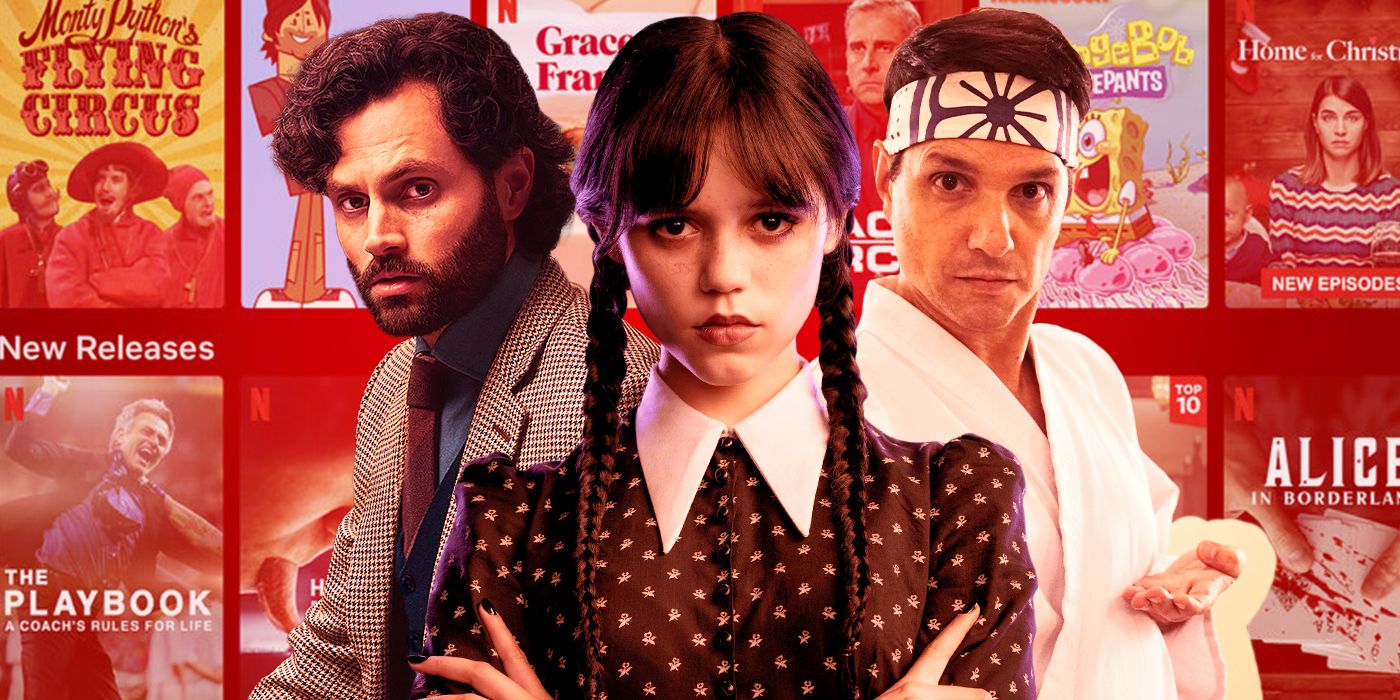Netflix is planning to crack down on password sharing, a tremendously bad idea on countless levels.

Netflix is preparing to execute its long-standing plans to crack down on the practice of password-sharing, a concept that entails a single person sharing their account across multiple households and people. The impending new status quo will require users to sign in to a single “home wi-fi” once every 31 days or devices trying to access Netflix will be blocked from accessing the streamer. Naturally, this news has been met with a storm of negative responses and why wouldn’t it? From every conceivable level, Netflix’s new approach to password sharing is reprehensible and bound to aggravate rather than please consumers.
The Basic Problems of Netflix’s New Password-Sharing Rules
Let’s cut straight to the chase here: Netflix’s new password-sharing policy is based solely on greed. Despite having over 230 million paid subscribers as of its last quarterly earnings, Netflix, like so many massive conglomerates, always wants to hoard more money, like Smaug the Dragon taking every gold coin he can find. This pursuit of “money money money!” at the expense of what the customer wants or needs isn’t exclusive to Netflix, but this is a blatant example of that rampant phenomenon. Really, that’s all you need to know for why Netflix’s new password-sharing approach is so bad; it’s a process that lines up the pockets of the 1% while hurting the working class.
Even beyond that devastating problem, though, Netflix’s new password sharing rules are staggeringly ill-conceived on several fronts. For one thing, Netflix hasn’t given much thought to the idea of some of its users working on the road and not having a designated “home wi-fi” to connect to. The streamer has said it has a process where it will send out codes to people who want to access their accounts, but the phrasing makes this seem like it’d be a one-time deal for access to one’s own account. That’s not going to work for many users who are forced to move around the country or world as part of their occupation. Are people who live on the road innately forbidden from watching Glass Onion? What did people in this job market do to Netflix executives?
It also doesn’t help that this process is bound to alienate young consumers, many of whom use Netflix accounts from their parents. Given how Generation Z and many Millennials are navigating a turbulent economic landscape, it’s no surprise many of them have found an affordable way to access entertainment. Now, with this maneuver, Netflix stands to lose a good chunk of that valuable demographic. It’s unspeakably unlikely that people 28 or younger who get turned off by Netflix’s actions here will suddenly turn around and shell out money for a monthly subscription given how cash-strapped this segment of the population is.
Netflix’s new approach not only ignores economic realities for many of its viewers but also for the kind of people who are watching some of its most popular programming. In 2022, Wednesday and Stranger Things dominated the world of Netflix, with much of their pop culture impact coming from how much these stories resonated with teenage and college-aged viewers. That’s a demographic that will be way less inclined to watch Netflix once this crackdown on password sharing is in effect. Even potentially jeopardizing such a valuable demo would be unthinkable for other services, but Netflix is leaping into this inevitability.
This New Decision Limits Viewers But They Have Other Streamers To Go To NowLove is sharing a password. — Netflix (@netflix) March 10, 2017
Netflix’s gung-ho attitude toward cracking down on password sharing is especially strange given how it doesn’t appear to be much of a concern for other streamers. While it’s obvious all these entities would love to have as much cash as possible, competing streamers, especially newer ones like Peacock just happy to have anybody watching their wares have a more blasé attitude towards the idea of a single person spreading their password around. Limits on how many devices one account can be signed into seemed to be the extent any major streamer was going to take against password sharing. Even Netflix, six years ago, was tweeting affectionately about the practice.
It’s doubtful that embracing this flawed method will suddenly make every Netflix subscriber go over to Apple TV+. But Netflix being the only one of the major streamers making it difficult for people to utilize their accounts however they want will doubtlessly drive at least some people to make other streamers more of a priority. If Amazon Prime Video and Hulu, for instance, are more flexible on where and how you watch stuff on your account, why wouldn’t people embrace that? Convenience was a big deal for Netflix streaming when it started out and now its new restrictive approach to password sharing feels antithetical to that and the default norms of the streaming landscape.
It wouldn’t be a surprise if Netflix drives some consumers to other streamers if they embrace this approach to password sharing since one of the biggest problems with this tactic is just how restrictive it is to consumers. People shelling out $20 a month for Netflix should really have more control over who has access to their account and where. Restricting the control of your customers is never a good thing and will doubtlessly come back to harm Netflix long-term.
RELATED:This Netflix Series Has Bewitched Audiences For 18 Weeks
Will This Password-Sharing Crackdown Even See the Light of Day?
Then again, perhaps this process will never be executed entirely in this form, at least in North America. Goodness knows Netflix has a bad habit of announcing elaborate plans that never materialize. Months after the movie debuted on the service, that planned cinematic universe spinning out of The Gray Man has failed to make any momentum, ditto a multimedia approach to adapting the works in the Chronicles of Narnia saga. Most relevant, though, is the quick demise of Qwikster, a service that was meant to be the new home for Netflix DVD rentals back in 2011. This plan to split Netflix into companies (one focused on streaming and the other concentrated on physical media) went so badly that the entire concept was abandoned.
Netflix’s constant emphasis on cracking down on password sharing in the last year makes it doubtful this concept will immediately get shunted to a cold box somewhere like Qwikster. Still, the rampant negative reception to this process and the endless downsides to it means it isn’t unreasonable to imagine Netflix might, at the very least, tweak their plans, at least for an initial rollout. That’s the bare minimum this streamer needs to do when it comes to its current plans for curbing password sharing, which seem destined to do nothing more than alienate and frustrate consumers.










